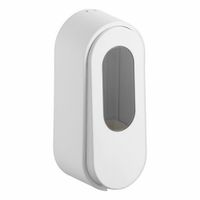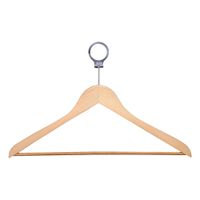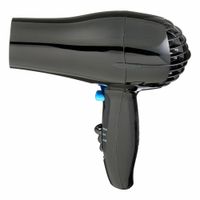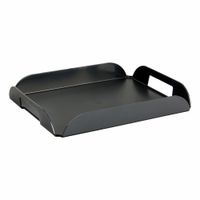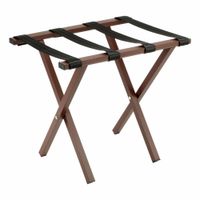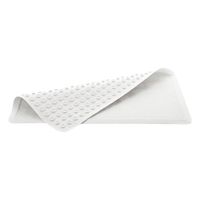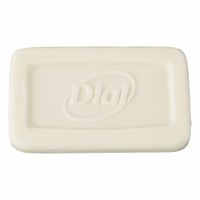Call +(254) 703 030 000 / 751 483 999 / 721 704 777
- Home
- Furnishings Appliances Hospitality
- Hospitality Supplies
- Housekeeping Supplies
- Hotel Room Amenities
.....Read More
Frequently Asked Questions
What are single-use toiletries?
Single-use toiletries are personal care products designed for one-time use before disposal. These items are typically found in hotels, airlines, and travel kits, providing convenience and hygiene for travelers. Common examples include small bottles of shampoo, conditioner, body wash, lotion, and individually wrapped bars of soap. Other items can include single-use toothbrushes, toothpaste sachets, razors, shaving cream packets, and makeup remover wipes.
The primary advantage of single-use toiletries is their convenience, especially for travelers who need lightweight and compact options. They also ensure hygiene, as each item is sealed and used by only one person, reducing the risk of contamination. Additionally, they are often provided as complimentary amenities in hospitality settings, enhancing guest experience.
However, single-use toiletries contribute significantly to environmental waste. The packaging, often made of plastic, is discarded after one use, leading to increased landfill waste and pollution. This environmental impact has led to growing criticism and a push for more sustainable alternatives.
In response, many hotels and airlines are transitioning to eco-friendly options, such as refillable dispensers, biodegradable packaging, and offering toiletries only upon request. Some establishments encourage guests to bring their own toiletries or provide larger, multi-use bottles to reduce waste.
Overall, while single-use toiletries offer convenience and hygiene, their environmental impact has prompted a shift towards more sustainable practices in the hospitality and travel industries.
How do bulk toiletry dispenser systems work?
Bulk toiletry dispenser systems are designed to efficiently dispense personal care products like soap, shampoo, conditioner, and lotion in settings such as hotels, gyms, and public restrooms. These systems typically consist of wall-mounted units with refillable containers or cartridges that hold the toiletry products.
The dispensers operate using either manual or automatic mechanisms. Manual dispensers require the user to press a button or lever to release a controlled amount of product. Automatic dispensers use sensors to detect motion or proximity, dispensing the product without physical contact, which enhances hygiene.
The refillable containers or cartridges are usually made of durable materials like plastic or stainless steel to withstand frequent use. They are designed to be easily removed and replaced or refilled, minimizing maintenance time and effort. Some systems use sealed cartridges to prevent contamination and ensure product integrity.
Installation involves securely mounting the dispenser units to walls or other surfaces, often using screws or adhesive backing. The units are strategically placed for easy access, typically near sinks or showers.
These systems offer several benefits, including cost savings from buying toiletries in bulk, reduced waste from single-use packaging, and improved hygiene through controlled dispensing. They also provide a consistent and professional appearance, enhancing the user experience in commercial settings.
What is the purpose of a hair dryer in a hotel room?
The purpose of a hair dryer in a hotel room is to provide guests with a convenient and essential grooming tool that enhances their comfort and experience during their stay. Hair dryers are a standard amenity in many hotels, catering to the diverse needs of travelers who may not carry personal hair styling equipment due to luggage constraints or personal preference.
Firstly, a hair dryer allows guests to dry their hair quickly after a shower, which is particularly beneficial for those on tight schedules, such as business travelers or tourists with planned itineraries. This convenience helps guests maintain their grooming routine without delay, ensuring they can present themselves well for meetings, events, or outings.
Secondly, hair dryers offer styling capabilities, enabling guests to achieve their desired hair look without needing additional tools. This is especially important for guests attending formal events or business meetings, where personal appearance can impact confidence and impressions.
Moreover, providing a hair dryer enhances the overall guest experience by demonstrating the hotel's attention to detail and commitment to guest satisfaction. It reflects the hotel's understanding of guest needs and contributes to a sense of home-like comfort, which can influence guest reviews and repeat business.
Additionally, hair dryers can serve secondary purposes, such as drying clothes or shoes in emergencies, adding to their utility value in a hotel room.
In summary, a hair dryer in a hotel room is a practical amenity that supports personal grooming, enhances guest convenience, and contributes to a positive hotel experience, reflecting the establishment's commitment to guest comfort and satisfaction.
Why are clothes hangers important in hotel rooms?
Clothes hangers are crucial in hotel rooms for several reasons. Firstly, they provide guests with a convenient way to store and organize their clothing, helping to prevent wrinkles and maintain the condition of garments. This is particularly important for business travelers who need to keep suits and formal wear in pristine condition for meetings and events.
Secondly, hangers contribute to the overall guest experience by enhancing the room's functionality and comfort. A well-organized closet space with ample hangers allows guests to unpack and settle in more easily, making their stay more enjoyable and stress-free. This attention to detail can significantly impact a guest's perception of the hotel's quality and service.
Moreover, hangers are a cost-effective way for hotels to demonstrate their commitment to guest satisfaction. By providing a sufficient number of sturdy, high-quality hangers, hotels show that they care about the small details that contribute to a pleasant stay. This can lead to positive reviews and repeat business, as guests are more likely to return to a hotel where they felt their needs were thoughtfully addressed.
Additionally, hangers can serve as a subtle branding opportunity. Many hotels use custom hangers with their logo or name, reinforcing brand identity and creating a cohesive aesthetic throughout the room. This can enhance brand recognition and loyalty among guests.
Finally, hangers play a role in sustainability efforts. By offering reusable hangers instead of disposable options, hotels can reduce waste and promote environmentally friendly practices. This aligns with the growing demand for sustainable travel options and can attract eco-conscious guests.
In summary, clothes hangers are a small but significant element in hotel rooms, contributing to guest satisfaction, brand identity, and sustainability.
What is the function of a luggage rack in a hotel room?
A luggage rack in a hotel room serves several practical functions to enhance guest convenience and room organization. Primarily, it provides a designated space for guests to place their suitcases, making it easier to access and organize their belongings without having to bend down to the floor. This is particularly beneficial for guests with mobility issues or those who prefer not to place their luggage on the bed or floor, which can be unhygienic or inconvenient.
The luggage rack helps protect the room's furniture and flooring from potential damage caused by heavy or sharp-edged suitcases. By offering a stable and elevated platform, it prevents scuff marks, scratches, or dirt from being transferred to other surfaces. Additionally, it aids in maintaining cleanliness and order within the room, as guests can keep their luggage off the floor, reducing clutter and making the space feel more open and tidy.
From a hotel management perspective, luggage racks are cost-effective and require minimal maintenance, yet they significantly enhance guest satisfaction by providing a thoughtful amenity that addresses practical needs. They are typically foldable, allowing for easy storage when not in use, and can be made from various materials such as wood, metal, or plastic to match the room's decor.
Overall, the luggage rack is a simple yet essential feature in hotel rooms, contributing to a more comfortable and organized stay for guests while protecting the room's furnishings and maintaining a clean environment.
How can hotel room organization and storage reduce clutter?
Hotel room organization and storage can significantly reduce clutter by implementing strategic design and efficient use of space. Firstly, multi-functional furniture, such as beds with built-in drawers or ottomans with storage, maximizes space utilization. This allows guests to store personal items out of sight, maintaining a tidy environment.
Secondly, the use of vertical space is crucial. Wall-mounted shelves, hooks, and hanging organizers provide additional storage without occupying floor space. This approach keeps items like coats, bags, and accessories organized and easily accessible.
Closet space can be optimized with adjustable shelving and hangers, allowing guests to customize the space according to their needs. Providing ample hangers and compartments encourages guests to unpack and store their belongings neatly.
Incorporating clear labeling and designated areas for specific items, such as luggage racks or shoe storage, guides guests in maintaining order. This reduces the likelihood of items being scattered around the room.
Additionally, providing storage solutions for smaller items, such as bedside tables with drawers or desk organizers, helps keep surfaces clear. This not only reduces visual clutter but also enhances the room's functionality.
Finally, a minimalist design approach with fewer decorative items and more open space can create a sense of order and tranquility. By reducing unnecessary furnishings and decor, the room feels more spacious and less cluttered.
Overall, thoughtful organization and storage solutions in hotel rooms promote a clutter-free environment, enhancing guest comfort and satisfaction.
Why are shower mats important in hotel bathrooms?
Shower mats are crucial in hotel bathrooms for several reasons, primarily focusing on safety, hygiene, and comfort.
Firstly, safety is a paramount concern in hotel environments. Bathrooms can become slippery due to water and soap, increasing the risk of slips and falls. Shower mats provide a non-slip surface, reducing the likelihood of accidents and potential liability issues for the hotel. This is particularly important for guests with mobility challenges, the elderly, or children, who are more susceptible to falls.
Secondly, hygiene is another critical factor. Shower mats act as a barrier between the guest and the bathroom floor, which may harbor bacteria and fungi despite regular cleaning. Mats made from materials resistant to mold and mildew further enhance cleanliness, ensuring a more sanitary experience for guests. This is vital in maintaining the hotel's reputation for cleanliness and guest satisfaction.
Additionally, comfort plays a significant role in the guest experience. Shower mats offer a softer, warmer surface compared to cold, hard tiles, enhancing the overall comfort of the bathroom experience. This attention to detail can significantly impact a guest's perception of the hotel, contributing to positive reviews and repeat business.
Moreover, shower mats can be an aesthetic addition to the bathroom, complementing the decor and adding a touch of luxury. High-quality, well-maintained mats reflect the hotel's commitment to providing a superior guest experience.
In summary, shower mats in hotel bathrooms are essential for ensuring guest safety, maintaining hygiene, enhancing comfort, and contributing to the overall aesthetic appeal, all of which are crucial for guest satisfaction and the hotel's reputation.
